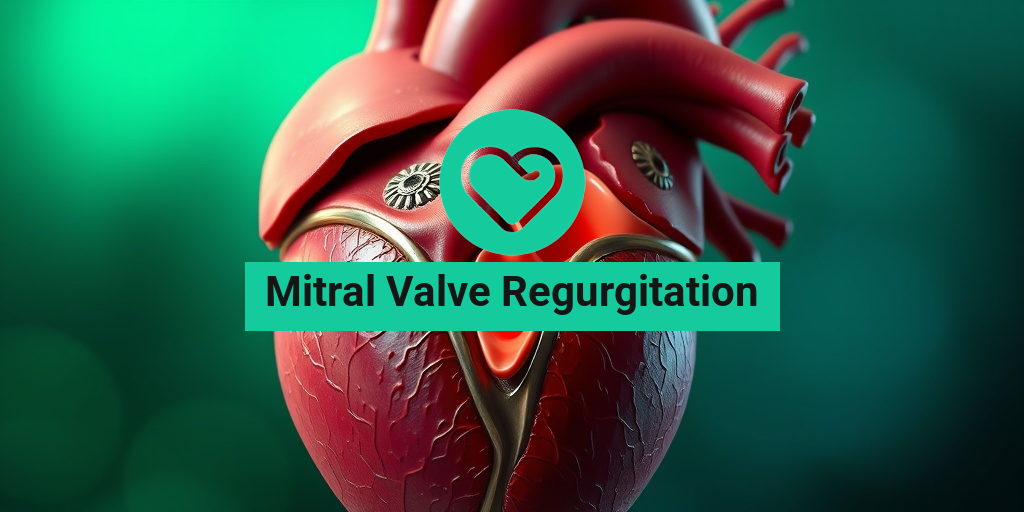What Is Mitral Valve Regurgitation?
Mitral Valve Regurgitation (MVR) is a heart condition that occurs when the mitral valve, which is located between the left atrium and left ventricle of the heart, does not close properly. This improper closure allows blood to flow backward into the left atrium when the left ventricle contracts, leading to inefficient blood circulation throughout the body. Understanding MVR is crucial for recognizing its implications on heart health and overall well-being.
Causes of Mitral Valve Regurgitation
There are several factors that can contribute to the development of mitral valve regurgitation:
- Degenerative Changes: Age-related wear and tear can lead to the deterioration of the mitral valve.
- Rheumatic Fever: This inflammatory disease can damage the heart valves, including the mitral valve, often as a complication of untreated strep throat.
- Heart Conditions: Other heart conditions, such as coronary artery disease or cardiomyopathy, can also affect the mitral valve.
- Infective Endocarditis: An infection of the heart lining can damage the mitral valve.
- Genetic Factors: Certain inherited conditions can predispose individuals to mitral valve problems.
Types of Mitral Valve Regurgitation
Mitral valve regurgitation can be classified into two main types:
- Acute Mitral Valve Regurgitation: This type occurs suddenly and is often caused by a heart attack or rupture of the chordae tendineae (the cords that support the valve).
- Chronic Mitral Valve Regurgitation: This type develops gradually over time and may not present symptoms until it becomes severe.
Symptoms of Mitral Valve Regurgitation
Recognizing the symptoms of mitral valve regurgitation is essential for early diagnosis and treatment. While some individuals may experience no symptoms, others may notice a range of signs that can vary in severity.
Common Symptoms
Here are some of the most common symptoms associated with mitral valve regurgitation:
- Shortness of Breath: This may occur during physical activity or even at rest, especially when lying down.
- Fatigue: A general feeling of tiredness can be a result of the heart’s decreased efficiency.
- Palpitations: Some individuals may experience irregular heartbeats or a racing heart.
- Swelling: Fluid retention can lead to swelling in the legs, ankles, or abdomen.
- Chest Pain: Although less common, some may experience discomfort or pain in the chest.
When to Seek Medical Attention
If you experience any of the above symptoms, especially if they worsen or are accompanied by other concerning signs such as fainting or severe chest pain, it is crucial to seek medical attention promptly. Early diagnosis can lead to better management of the condition and improved outcomes.
Diagnosis of Mitral Valve Regurgitation
Healthcare providers typically use a combination of physical examinations and diagnostic tests to confirm mitral valve regurgitation. These may include:
- Physical Exam: A doctor may detect a characteristic murmur during a stethoscope examination.
- Imaging Tests: Echocardiograms are commonly used to visualize the heart’s structure and function.
- Electrocardiogram (ECG): This test measures the electrical activity of the heart and can identify irregularities.
For more detailed information and resources on mitral valve regurgitation, consider visiting Yesil Health AI, where you can find evidence-based health answers tailored to your needs.
In conclusion, understanding mitral valve regurgitation is vital for maintaining heart health. By recognizing the symptoms and seeking timely medical advice, individuals can manage this condition effectively and improve their quality of life. ❤️

Causes of Mitral Valve Regurgitation
Mitral Valve Regurgitation (MVR) occurs when the mitral valve, which is located between the left atrium and left ventricle of the heart, fails to close properly. This malfunction allows blood to flow backward into the atrium, leading to various complications. Understanding the causes of MVR is crucial for effective management and treatment. Here are some of the primary causes:
1. Degenerative Changes
As we age, the mitral valve can undergo degenerative changes. This is often due to wear and tear, leading to conditions such as mitral valve prolapse, where the valve flaps (leaflets) bulge backward into the atrium during contraction. This condition can result in regurgitation over time.
2. Rheumatic Fever
Rheumatic fever, a complication of untreated strep throat, can damage the heart valves, including the mitral valve. This inflammatory disease can lead to scarring and deformity of the valve, causing it to leak.
3. Infective Endocarditis
This is an infection of the inner lining of the heart, which can affect the mitral valve. Bacteria or fungi can invade the valve, leading to damage and regurgitation. Symptoms may include fever, chills, and fatigue.
4. Ischemic Heart Disease
Conditions that reduce blood flow to the heart, such as coronary artery disease, can weaken the heart muscle and affect the mitral valve’s function. This can lead to MVR as the heart struggles to pump blood effectively.
5. Congenital Heart Defects
Some individuals are born with structural heart defects that affect the mitral valve. These congenital issues can lead to regurgitation either at birth or later in life as the heart develops.
6. Other Conditions
Other medical conditions, such as Marfan syndrome or Ehlers-Danlos syndrome, can affect the connective tissues in the heart, leading to mitral valve abnormalities and regurgitation. Additionally, conditions like hypertension can also contribute to the deterioration of the valve.
Risk Factors for Mitral Valve Regurgitation
Identifying the risk factors for Mitral Valve Regurgitation is essential for prevention and early intervention. While some factors are beyond our control, others can be managed through lifestyle changes and medical care. Here are the key risk factors:
1. Age
As mentioned earlier, the risk of developing MVR increases with age. Older adults are more likely to experience degenerative changes in the mitral valve, making age a significant risk factor.
2. Family History
A family history of heart disease or congenital heart defects can increase your risk of MVR. Genetic predispositions can play a role in the development of valve disorders.
3. Previous Heart Conditions
If you have a history of heart disease, such as coronary artery disease or previous heart surgeries, your risk for developing MVR is higher. These conditions can weaken the heart and its valves.
4. Lifestyle Factors
Unhealthy lifestyle choices can contribute to heart disease and, consequently, MVR. Factors such as:
- Smoking
- Obesity
- Lack of physical activity
- Poor diet
can all increase your risk of heart problems, including MVR.
5. Other Medical Conditions
Chronic conditions such as hypertension and diabetes can also elevate the risk of developing Mitral Valve Regurgitation. Managing these conditions effectively is crucial for heart health.
6. Gender
Research indicates that women may be at a higher risk for certain types of mitral valve disorders, including MVR. Hormonal differences and other biological factors may contribute to this increased risk.
Understanding the causes and risk factors associated with Mitral Valve Regurgitation can empower individuals to take proactive steps in managing their heart health. Regular check-ups and a healthy lifestyle can significantly impact the prevention and management of this condition. ❤️

Diagnosis of Mitral Valve Regurgitation
Diagnosing Mitral Valve Regurgitation (MVR) is a crucial step in managing this heart condition effectively. MVR occurs when the mitral valve does not close properly, allowing blood to flow backward into the heart. This can lead to various symptoms and complications if left untreated. Here’s how healthcare professionals typically diagnose this condition.
Symptoms to Watch For
Patients with MVR may experience a range of symptoms, including:
- Shortness of breath: This can occur during physical activity or even at rest.
- Fatigue: A general feeling of tiredness that doesn’t improve with rest.
- Palpitations: An irregular heartbeat or the sensation of a racing heart.
- Swelling: Fluid retention in the legs, ankles, or abdomen.
If you notice any of these symptoms, it’s essential to consult a healthcare provider for further evaluation.
Physical Examination
During a physical exam, a doctor will listen to your heart using a stethoscope. They may detect a characteristic murmur associated with MVR. This murmur is caused by the turbulent blood flow due to the improper closure of the mitral valve. The doctor may also check for signs of heart failure, such as swelling in the legs or fluid in the lungs.
Diagnostic Tests
To confirm a diagnosis of Mitral Valve Regurgitation, several tests may be conducted:
- Echocardiogram: This is the most common test used to diagnose MVR. It uses sound waves to create images of the heart, allowing doctors to see the mitral valve’s structure and function.
- Electrocardiogram (ECG): This test records the electrical activity of the heart and can help identify any irregularities.
- X-rays: Chest X-rays can show the size of the heart and any fluid buildup in the lungs.
- Cardiac MRI: In some cases, a cardiac MRI may be used for a more detailed view of the heart’s structure.
These diagnostic tools help healthcare providers determine the severity of the regurgitation and the best course of action for treatment.
Complications of Mitral Valve Regurgitation
If left untreated, Mitral Valve Regurgitation can lead to several serious complications that can significantly impact a patient’s health. Understanding these potential issues is vital for anyone diagnosed with MVR.
Heart Failure
One of the most common complications of MVR is heart failure. When the mitral valve does not function properly, the heart has to work harder to pump blood. Over time, this increased workload can weaken the heart muscle, leading to heart failure. Symptoms may include severe shortness of breath, fatigue, and fluid retention.
Atrial Fibrillation
Patients with MVR are also at risk for developing atrial fibrillation, an irregular heartbeat that can lead to blood clots, stroke, and other heart-related issues. This condition occurs due to the enlargement of the heart’s left atrium, which can happen as a result of chronic regurgitation.
Pulmonary Hypertension
Another potential complication is pulmonary hypertension, which is high blood pressure in the blood vessels that supply the lungs. This condition can develop as the heart struggles to pump blood effectively, leading to increased pressure in the pulmonary arteries. Symptoms may include shortness of breath and chest pain.
Infective Endocarditis
Individuals with MVR are also at a higher risk for infective endocarditis, an infection of the inner lining of the heart. This can occur when bacteria enter the bloodstream and attach to damaged heart valves. Symptoms may include fever, chills, and fatigue, and this condition requires immediate medical attention.
Mitral Valve Repair or Replacement
In severe cases, surgical intervention may be necessary. Mitral valve repair or replacement surgery can help restore normal function and prevent further complications. The decision for surgery typically depends on the severity of the regurgitation and the presence of symptoms.
In conclusion, early diagnosis and management of Mitral Valve Regurgitation are crucial to preventing these complications. If you suspect you have MVR or are experiencing related symptoms, don’t hesitate to seek medical advice. Your heart health is paramount! ❤️

Treatment Options for Mitral Valve Regurgitation
Mitral Valve Regurgitation (MVR) is a condition where the heart’s mitral valve does not close properly, allowing blood to flow backward into the heart. This can lead to various symptoms and complications if left untreated. Fortunately, there are several treatment options available, ranging from lifestyle changes to surgical interventions. Let’s explore these options in detail.
1. Lifestyle Modifications
For individuals with mild Mitral Valve Regurgitation, lifestyle changes can play a significant role in managing symptoms and improving heart health. Here are some effective modifications:
- Heart-healthy diet: Incorporate fruits, vegetables, whole grains, and lean proteins while reducing saturated fats, salt, and sugar.
- Regular exercise: Engage in moderate physical activity, such as walking or swimming, to strengthen the heart and improve overall fitness.
- Avoiding tobacco: Quitting smoking can significantly reduce the risk of heart disease and improve cardiovascular health.
- Weight management: Maintaining a healthy weight can alleviate stress on the heart and improve symptoms.
2. Medications
In some cases, medications may be prescribed to help manage symptoms and prevent complications associated with Mitral Valve Regurgitation. Common medications include:
- Diuretics: These help reduce fluid buildup in the body, easing symptoms like shortness of breath.
- Beta-blockers: These medications can help lower heart rate and blood pressure, reducing the workload on the heart.
- Anticoagulants: If there is a risk of blood clots, anticoagulants may be prescribed to prevent stroke.
3. Surgical Interventions
For moderate to severe cases of Mitral Valve Regurgitation, surgical options may be necessary. The two primary surgical procedures are:
- Mitral Valve Repair: This is often the preferred option, where the surgeon repairs the existing valve to restore proper function. It typically has a shorter recovery time and better outcomes.
- Mitral Valve Replacement: If the valve is severely damaged, it may need to be replaced with a mechanical or biological valve. This option may require lifelong anticoagulation therapy.
Before deciding on surgery, your healthcare provider will conduct thorough evaluations, including echocardiograms and other imaging tests, to determine the best course of action.
Living with Mitral Valve Regurgitation
Living with Mitral Valve Regurgitation can be challenging, but with the right management strategies, individuals can lead fulfilling lives. Here are some tips for coping with this condition:
1. Regular Monitoring
Regular check-ups with your healthcare provider are essential for monitoring the progression of Mitral Valve Regurgitation. This may include:
- Echocardiograms: These imaging tests help assess the function of the mitral valve and the heart’s overall health.
- Blood tests: Routine blood tests can help monitor heart function and detect any complications early.
2. Recognizing Symptoms
Being aware of the symptoms of Mitral Valve Regurgitation is crucial for timely intervention. Common symptoms include:
- Shortness of breath: This may occur during physical activity or while lying down.
- Fatigue: Feeling unusually tired can be a sign of decreased heart function.
- Palpitations: Irregular heartbeats or a racing heart can indicate worsening regurgitation.
3. Emotional Support
Living with a chronic condition can take an emotional toll. Seeking support from friends, family, or support groups can be beneficial. Consider:
- Joining support groups: Connecting with others who have similar experiences can provide comfort and understanding.
- Talking to a therapist: Professional counseling can help manage anxiety and depression related to living with a chronic illness.
4. Staying Informed
Knowledge is power. Stay informed about Mitral Valve Regurgitation by:
- Reading reputable sources: Look for articles, books, and websites dedicated to heart health.
- Attending educational seminars: Many hospitals and organizations offer workshops on heart health and disease management.
By understanding your condition and actively participating in your care, you can improve your quality of life and manage Mitral Valve Regurgitation effectively. Remember, you are not alone on this journey! 💖

Frequently Asked Questions about Mitral Valve Regurgitation
What is Mitral Valve Regurgitation?
Mitral Valve Regurgitation is a heart condition where the mitral valve does not close properly, allowing blood to flow backward into the left atrium when the left ventricle contracts. This can lead to various symptoms and complications if left untreated.
What are the symptoms of Mitral Valve Regurgitation?
- Shortness of breath, especially during physical activity or when lying down.
- Fatigue and weakness.
- Palpitations or irregular heartbeats.
- Swelling in the legs or abdomen.
- Chest pain or discomfort.
How is Mitral Valve Regurgitation diagnosed?
Diagnosis typically involves a physical examination, where a doctor may hear a characteristic murmur through a stethoscope. Additional tests such as echocardiograms, chest X-rays, or electrocardiograms may be performed to assess the severity of the condition.
What are the treatment options for Mitral Valve Regurgitation?
Treatment options vary based on the severity of the condition and may include:
- Medications to manage symptoms and reduce the workload on the heart.
- Regular monitoring for mild cases.
- Surgical options, such as mitral valve repair or replacement, for more severe cases.
What is the life expectancy for someone with Mitral Valve Regurgitation?
The life expectancy for individuals with Mitral Valve Regurgitation can vary widely depending on the severity of the condition, overall health, and whether treatment is received. Many people live normal lives with proper management.
What is the difference between Mitral Valve Regurgitation and Mitral Valve Prolapse?
Mitral Valve Prolapse occurs when the mitral valve flaps bulge into the left atrium during heartbeats, which can sometimes lead to regurgitation. While both conditions involve the mitral valve, they are distinct in their mechanisms and implications.
What does the sound of Mitral Valve Regurgitation sound like?
The sound associated with Mitral Valve Regurgitation is often described as a “holosystolic murmur,” which is a continuous sound that occurs throughout the heart’s contraction phase. This sound can be detected during a physical examination.
Is surgery always necessary for Mitral Valve Regurgitation?
No, surgery is not always necessary. Many individuals with mild to moderate Mitral Valve Regurgitation can manage their condition with regular monitoring and medication. Surgical intervention is typically reserved for severe cases where symptoms significantly impact quality of life.
How can I manage Mitral Valve Regurgitation at home?
Managing Mitral Valve Regurgitation at home may include:
- Maintaining a healthy diet and weight.
- Engaging in regular, moderate exercise as advised by your doctor.
- Avoiding excessive salt intake to reduce fluid retention.
- Monitoring symptoms and keeping regular follow-up appointments with your healthcare provider.
Where can I find more information about Mitral Valve Regurgitation?
For more information, consider consulting reputable medical websites, speaking with your healthcare provider, or joining support groups focused on heart health.




